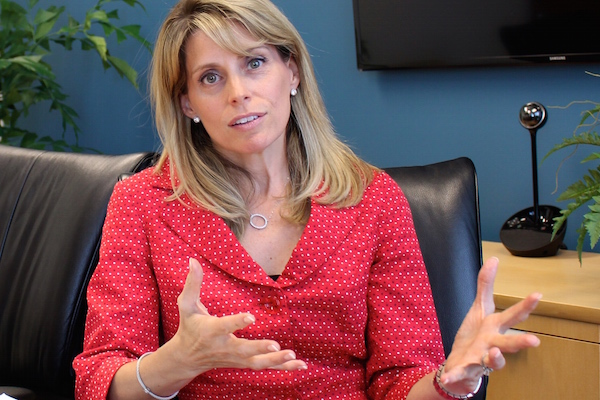Candidates should prepare for long interview with Wright
Candidates should prepare for long interview with Wright
- July 8, 2016 |
-
 WILLIAM EHART
WILLIAM EHART

Cofounder of Lochlin Partners quizzes jobseekers for up to two hours, uses frequent contact during search process to gauge character
 |
Not only did recruiter Liza Wright help former President George W. Bush choose Treasury Secretary Hank Paulson and Federal Reserve Chairman Ben Bernanke for their positions, she got to see them perform under the greatest pressure during the 2008 financial crisis, after she had left the administration.
"It gave me just a great understanding of what skills are necessary and what competencies you need to operate in these huge roles," she told CEO Update in an interview at the McLean, Va., offices of boutique search firm Lochlin Partners, which she cofounded.
Wright joined the administration in 2003 after more than eight years with global search giant Heidrick & Struggles, and was promoted to director of presidential personnel in 2005.
"Whatever President Bush cared about personally, I handled personally," she said.
Wright was part of a small search committee including Vice President Dick Cheney that chose Bernanke to head the Fed two years before the economic and market meltdown.
"The hard part wasn't necessarily identifying candidates—that's the challenge in a lot of searches—the hard part was trying to distinguish the strengths and the weaker points of the candidates and what was best suited for the country at that moment," she said.
Settle in for long talk
Wright probes deeply for those strengths and weaknesses among the candidates she's considering: Her interviews can last 90 minutes to two hours—longer, she said, than is typical at larger recruiting firms.
One of her most important criteria for leadership is character, and many indications of that come through during the interview and when she is checking references.
"What I'm looking for is for people to be honest. A lot of people try to game the interview and try to feed back what the client or the recruiter wants to hear. But a good recruiter is going to see through that.
"So I appreciate it when candidates come to the table and understand where their strengths are, but where the gaps are as well. I lump all that into character.
"When you look at the CEOs and senior leaders who stick, the character piece—humility, integrity, honesty, respect—is key. When you've got a leader who possesses those qualities, you see higher rates of success," she said.
Most of Lochlin Partners' recent placements in the association sector have been in senior staff positions. Examples include David Keen, chief financial officer at the American Psychiatric Association, and Stanley Pierre-Louis, general counsel at the Entertainment Software Association. The firm is now conducting a search for head of human relations at the American Bankers Association.
Anticipate questions
Candidates flub their resumes more frequently than they should at these senior levels. A resume should be clean and succinct, Wright said.
"We don't need to see graphs and flashy things," she said. "It's amazing what people will put on resumes, and we see typos often."
If you score an interview, be natural and unscripted. But come prepared.
"Even at the executive level I can't tell you how many people come in to an interview with a recruiter or a client and they haven't thought out insightful questions to ask; they haven't done a lot of digging on the organization to have developed a good sense of what's going on," she said.
Candidates should take time the night before an interview to review answers to potential questions.
"Anticipate the situational questions," Wright said, such as how you've influenced the organizations you've worked for and how you've handled conflict.
"The bottom line is they've got to come to the table having already thought through and anticipated what they might get asked so they are not having to recall it in the moment," she said.
Other no-nos include trying to dominate an interview and droning on too long with your answers.
"I often see people trying to take over the interview and they are not answering the questions that the recruiter or interviewer is asking," she said. "They've got their agenda of things they want to cover.
"If a candidate's going on for over five minutes for a particular question, they should pause and ask, ‘Have I answered your question?' Oftentimes you can read the body language of recruiters. If they have a question, they may start leaning forward," Wright said. "The candidates need to read those cues and respond accordingly."
Having friends and acquaintances lobby for you can be counterproductive.
"Some people are just too eager, so they often start launching a campaign to have other people call me and say how great they are," she said. "There's a time and a place for referencing and the recruiter or the client would dictate that. No recruiter wants to be inundated with phone calls."
Frequent touchpoints with candidates helps Wright gauge certain attributes.
"You can't judge character in a one-hour or two-hour interview," she said. "I build a relationship with the candidates through the process. It's like peeling an onion. Every day and every week of the search process when you're talking to them and getting to know them on a more personal level, some of these characteristics come out."
